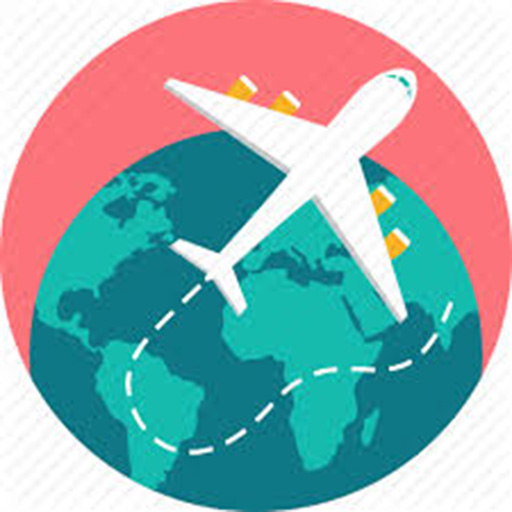Tourism education in an emerging digital economy: World experience and perspectives in Uzbekistan
Abstract
Worldwide tourism education is being promoted by various national and international agencies to achieve sustainable development goals. The presence of tourism education is tremendously growing in international universities. The results suggest that as per the academicians alongside with tourism professionals, the tourism education is highly relevant for economic development. It also shows that tourism education in Uzbekistan, is general a matter of course and specialization-based tourism programs are near to absent.
This article is not focused on the criticism of reforms in legislation and their functionality, but rather on introducing possibilities which may present an alternative to developing and realizing projects along the lines of innovation in Uzbekistan. The question is how vocational training schools and institutes of higher education, specifically training programmes in tourism and hospitality, have changed and are changing now that the new laws on education, on vocational training. What kind of future can these institutions look forward to, what will they be teaching and in what conditions, especially, in time and after pandemic CoViD-19? This question applies equally to theoretical and practical training.
References
Barbera, E., Garcia, I. and Fuertes-Alpiste, M. (2017), “A co-design process microanalysis: Stages and facilitators of an inquiry-based and technology-enhanced learning scenario”, The International Review of Research in Open and Distributed Learning, Vol. 18, No. 6, doi: 10.19173/irrodl.v18i6.2805
Carretero, S., Vuorikari, R. and Punie, Y. (2017), DigComp 2.1: The Digital Competence Framework for Citizens with eight proficiency levels and examples of use, EUR 28558 EN. doi:10.2760/38842.
Cheung, G., Wan, K. and Chan, K. (2018), “Efficient use of clickers: A mixed-method inquiry with university teachers”, Education Sciences, Vol. 8, No. 31, doi:10.3390/educsci8010031
Chiao, H.-M., Chen, Y.-L. and Huang, W.-H. (2018), “Examining the usability of an online virtual tour-guiding platform for cultural tourism education”, Journal of Hospitality, Leisure, Sport & Tourism Education, Vol. 23, pp. 29-38, doi: 10.1016/j.jhlste.2018.05.002
Framke, W. (2002), “The Destination as a Concept: A Discussion of the Business-related Perspective versus the Socio-cultural Approach in Tourism Theory”, Scandinavian Journal of Hospitality and Tourism, Vol. 2, No. 2, pp. 92-108, doi:10.1080/15022250.2014.886100
Law, R., Buhalis, D. and Cobanoglu, C. (2014), “Progress on information and communication technologies in hospitality and tourism”, International Journal of Contemporary Hospitality Management, Vol. 26, No. 5, pp.727-750, doi:10.1108/IJCHM-08-2013-0367
Lin, J. and Cantoni, L. (2018), “Decision, implementation, and confirmation: Experiences of instructors behind tourism and hospitality MOOCs”, International Review of Research in Open and Distributed Learning, Vol. 19, No. 1, pp. 275-293.
Patiar, A., Ma, E., Kensbock, S. and Cox, R. (2017), “Students’ perceptions of quality and satisfaction with virtual field trips of hotels”, Journal of Hospitality and Tourism Management, Vol. 31, pp. 134-141, doi:10.1016/j.jhtm.2016.11.003
Schaffer, V. (2017), “Enhancing learning to diverse cohorts via immersive visualization”, Journal of Hospitality, Leisure, Sport & Tourism Education, Vol. 21, pp. 46–54, doi: 10.1016/j.jhlste.2017.07.001
Schott, C. (2017), “Virtual fieldtrips and climate change education for tourism students”, Journal of Hospitality, Leisure, Sport & Tourism Education, Vol. 21, pp. 13-22, doi: 10.1016/j.jhlste.2017.05.002
World Economic Forum (2017), Digital Transformation Initiative: Aviation, Travel and Tourism Industry, Geneva:Switzerland. URL: http://reports.weforum.org/digital-transformation/wp-content/blogs.dir/94/mp/files/pages/files/wef-dti-aviation-travel-and-tourism-white-paper.pdf
Xiao, C., Qiu, H. and Cheng, S.M. (2019), “Challenges and opportunities for effective assessments within a quality assurance framework for MOOCs”, Journal of Hospitality, Leisure, Sport & Tourism Education, Vol. 24, pp. 1-16, doi: 10.1016/j.jhlste.2018.10.005

Copyright (c) 2020 Azgarov Abdumutalib Alisher o’g’li

This work is licensed under a Creative Commons Attribution 4.0 International License.
In submitting the manuscript to the International Journal on Integrated Education (IJIE), the authors certify that:
- They are authorized by their co-authors to enter into these arrangements.
- The work described has not been formally published before, except in the form of an abstract or as part of a published lecture, review, thesis, or overlay journal.
- That it is not under consideration for publication elsewhere,
- The publication has been approved by the author(s) and by responsible authorities – tacitly or explicitly – of the institutes where the work has been carried out.
- They secure the right to reproduce any material that has already been published or copyrighted elsewhere.
- They agree to the following license and copyright agreement.
License and Copyright Agreement
Authors who publish with International Journal on Integrated Education (IJIE) agree to the following terms:
- Authors retain copyright and grant the International Journal on Integrated Education (IJIE) right of first publication with the work simultaneously licensed under Creative Commons Attribution License (CC BY 4.0) that allows others to share the work with an acknowledgment of the work's authorship and initial publication in this journal.
- Authors can enter into separate, additional contractual arrangements for the non-exclusive distribution of the International Journal on Integrated Education (IJIE) published version of the work (e.g., post it to an institutional repository or edit it in a book), with an acknowledgment of its initial publication in this journal.
- Authors are permitted and encouraged to post their work online (e.g., in institutional repositories or on their website) before and during the submission process, as it can lead to productive exchanges, as well as earlier and greater citation of published work.











